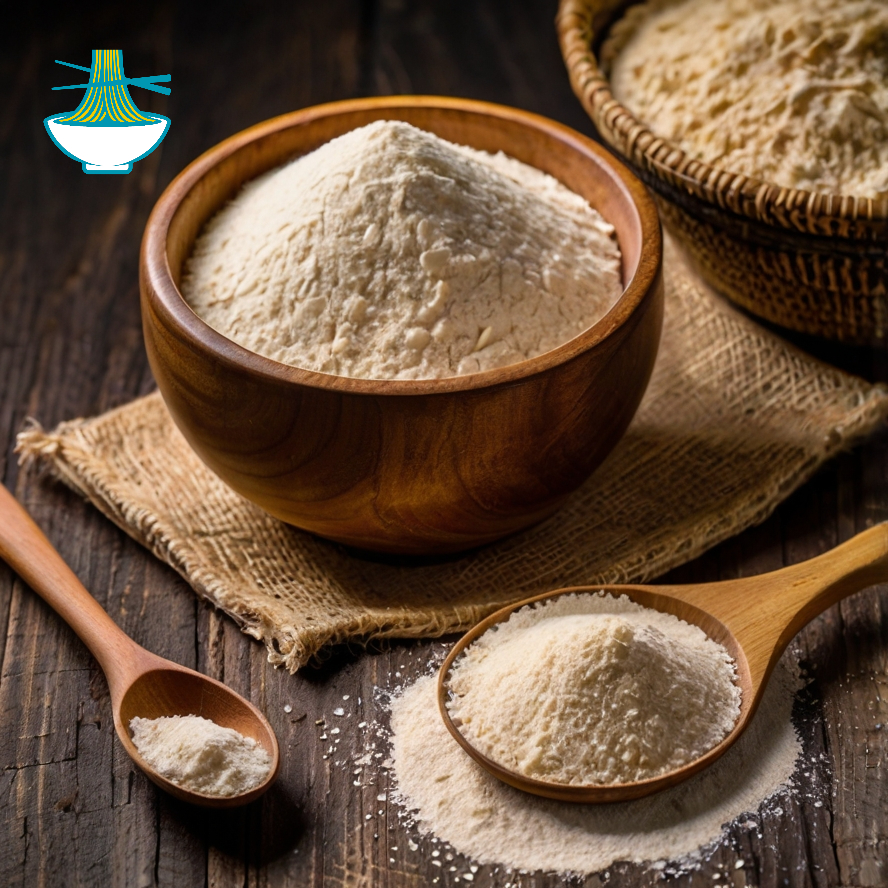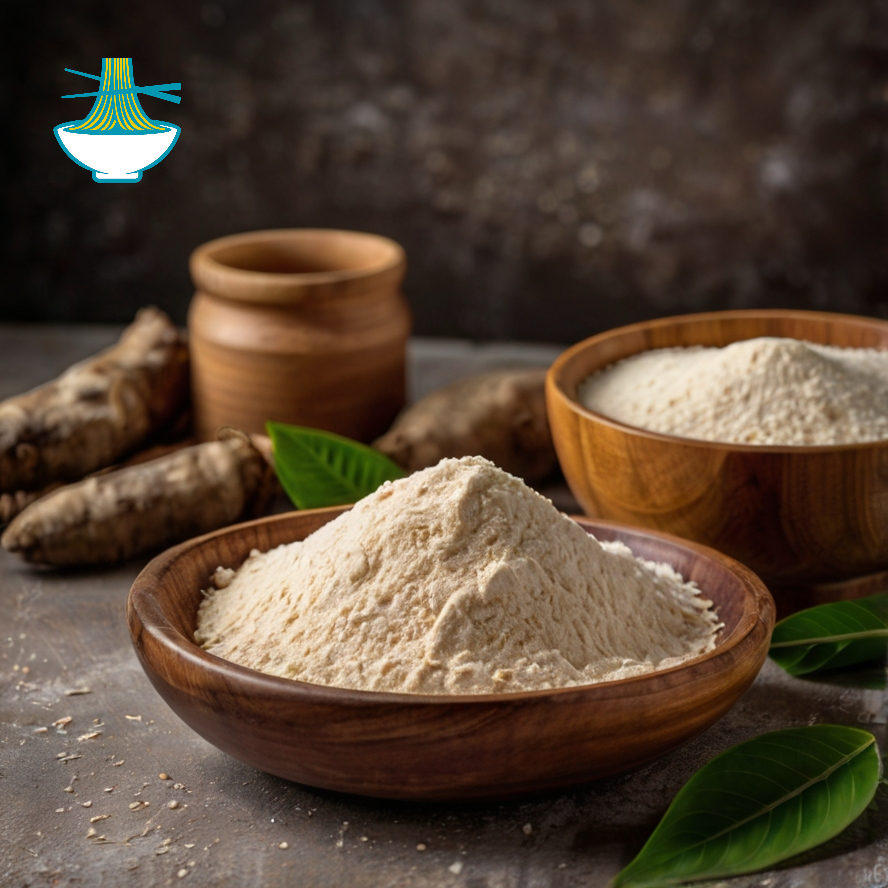Discover the versatile uses of Gari, made from dried cassava ground into flour. Learn how to prepare Gari for various dishes, including savory meals and comforting porridge. Our easy recipe guide covers everything from cooking tips to serving suggestions, perfect for adding a nutritious touch to your meals.
Ingredients:
- 1 cup Gari (cassava flour)
- 2 cups water
- 1 cup milk (or a non-dairy alternative)
- 2 tablespoons sugar (or to taste)
- 1/2 teaspoon ground cinnamon (optional)
- A pinch of salt
- Fresh fruit, nuts, or honey for topping (optional)
Instructions:
Prepare the Gari:
- In a medium pot, bring 2 cups of water to a boil.
Mix the Gari:
- Gradually add the Gari to the boiling water, stirring continuously to prevent lumps from forming.
Simmer:
- Reduce the heat to low and let the mixture simmer for about 5 minutes, stirring occasionally.
Add Milk:
- Slowly stir in the milk and continue to cook for an additional 2-3 minutes, or until the porridge reaches your desired consistency.
Season:
- Add sugar, ground cinnamon (if using), and a pinch of salt. Stir well to combine.
Serve:
- Pour the porridge into bowls and top with fresh fruit, nuts, or a drizzle of honey if desired.
Enjoy:
- Serve hot as a hearty breakfast or a comforting snack.
This simple Gari porridge is a nourishing option that's easy to prepare and customize to your taste preferences!
Nutritional Values
Gari (Cassava Flour) (1 cup)
- About 330 calories
- 0.5 grams of fat
- 85 grams of carbohydrates
- 2 grams of protein
Benefits: Provides a high source of carbohydrates for energy. It is also gluten-free and can be a good option for those with gluten sensitivities.
Water (2 cups)
- 0 calories
- 0 grams of fat
- 0 grams of carbohydrates
- 0 grams of protein
Benefits: Essential for hydration and helps in the preparation of the porridge.
Milk (1 cup) (or Non-Dairy Alternative)
- About 150 calories
- 8 grams of fat
- 12 grams of carbohydrates
- 8 grams of protein
Nutritional Value (Non-Dairy Alternative, varies by type):
- About 30-60 calories
- 1-3 grams of fat
- 1-7 grams of carbohydrates
- 1-3 grams of protein
Benefits: Provides protein, calcium, and vitamins. Non-dairy alternatives can offer varied nutritional profiles and are suitable for those with lactose intolerance or dietary preferences.
Sugar (2 tablespoons)
- About 30 calories
- 0 grams of fat
- 8 grams of carbohydrates (all sugars)
- 0 grams of protein
Benefits: Adds sweetness to the porridge. Use in moderation to manage calorie and sugar intake.
Ground Cinnamon (1/2 teaspoon, optional)
- About 3 calories
- 0.1 grams of fat
- 1 gram of carbohydrates
- 0.1 grams of protein
Benefits: Contains antioxidants and has anti-inflammatory properties. Adds flavor and may help with blood sugar regulation.
Salt (a pinch)
- About 0 calories
- 0 grams of fat
- 0 grams of carbohydrates
- 0 grams of protein
Benefits: Enhances flavor. Use in moderation to manage sodium intake.
Fresh Fruit, Nuts, or Honey (for topping, optional)
Fresh Fruit:
- About 30-40 calories
- 0.2 grams of fat
- 8-10 grams of carbohydrates
- 0.5 grams of protein
Benefits: Provides vitamins, fiber, and antioxidants. Adds natural sweetness and flavor.
Nuts (e.g., 1/4 cup):
- About 200 calories
- 18 grams of fat
- 7 grams of carbohydrates
- 5 grams of protein
Benefits: Adds healthy fats, protein, and fiber. Provides additional texture and flavor.
Honey (1 tablespoon):
- About 60 calories
- 0 grams of fat
- 17 grams of carbohydrates (all sugars)
- 0.1 grams of protein
Benefits: Natural sweetener with some antioxidants. Adds sweetness and can have antibacterial properties. Use in moderation.


Comments